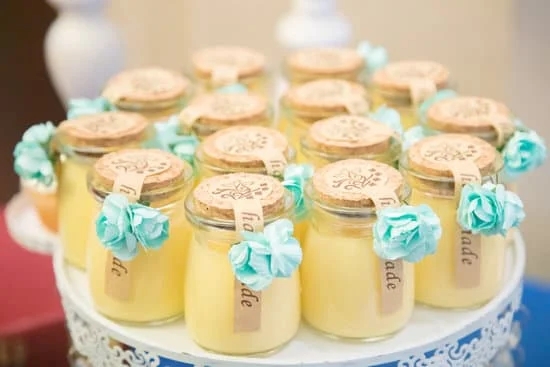Are you looking to add a touch of elegance and artistry to your cake decorations? Learn how to make chocolate leaves for cake decoration with our step-by-step guide. Chocolate leaves are versatile and luxurious adornments that can elevate the appearance of any dessert, taking it from ordinary to extraordinary.
Creating chocolate leaves involves a delicate process that requires attention to detail and a bit of creativity. From selecting the right type of chocolate to shaping the perfect leaf templates, each step contributes to the beauty of the final product. Whether you are a seasoned baker or just starting out, making chocolate leaves can be a fun and rewarding project that will impress your guests and enhance the visual appeal of your cakes.
In this article, we will provide you with all the essential information on materials needed, tips for choosing the best chocolate, instructions for making the chocolate mixture, techniques for creating leaf templates, dipping and setting the leaves, removing them without damage, and finally decorating your cake with these exquisite chocolate decorations. Get ready to embark on a journey into the world of chocolate artistry and take your cake decorating skills to the next level.
Materials Needed
When it comes to making chocolate leaves for cake decoration, having the right materials is key to achieving beautiful and elegant results. Here is a list of supplies that you will need to create your own chocolate leaves:
1. Chocolate: The main ingredient for your chocolate leaves, make sure to choose high-quality chocolate that melts smoothly and tastes delicious. You can use either milk, dark, or white chocolate, depending on your preference.
2. Leaf Templates: You will need real leaves or artificial leaf-shaped molds to create the shape of your chocolate leaves. Make sure to wash and dry the leaves thoroughly if using real ones, or have your molds ready for shaping the chocolate.
3. Double Boiler or Microwave: To melt the chocolate smoothly without burning it, you will need a double boiler or microwave-safe bowl for heating the chocolate.
4. Spatula or Spoon: For stirring and spreading the melted chocolate onto the leaf templates, a spatula or spoon will come in handy.
5. Parchment Paper: To lay out your chocolate-dipped leaves while they set and cool, parchment paper is essential to prevent sticking.
6. Baking Sheet: A baking sheet can be used as a flat surface to place your parchment paper with the dipped chocolate leaves for setting.
Now that you have gathered all of these necessary materials, you are well on your way to creating stunning chocolate leaves for decorating cakes that will impress any guest at your next event.
Choosing the Right Chocolate
When it comes to making chocolate leaves for cake decoration, choosing the right type of chocolate is essential for achieving the desired result. The quality and type of chocolate used will impact not only the taste but also the texture and appearance of the final product. There are a few factors to consider when selecting the best chocolate for creating chocolate leaves.
One key tip for choosing the right chocolate is to opt for high-quality chocolate that has a good cocoa content. Dark chocolate with at least 60% cocoa is recommended, as it will provide a rich flavor and smooth consistency when melted. Avoid using lower quality chocolates or candy melts, as they may not set properly or have a waxy texture that can detract from the overall aesthetic of your cake decorations.
Another important consideration when choosing chocolate for making leaves is whether you want to add any additional flavors or colors. If you want to enhance the taste of your chocolate leaves, consider using flavored chocolates such as mint, orange, or raspberry. You can also add food coloring to white chocolate if you want colored leaves for a more vibrant presentation. Experimenting with different types of chocolates and flavors can add an extra dimension to your cake decorations.
Overall, selecting the right type of chocolate for making chocolate leaves is crucial in achieving professional-looking results. By taking into account factors such as cocoa content, flavor options, and desired colors, you can create beautiful and delicious decorations that will impress your guests. With these tips in mind, you can confidently choose the perfect chocolate for your next cake decorating project using how to make chocolate leaves for cake decoration techniques.
Making the Chocolate Mixture
Melting the Chocolate
To begin making chocolate leaves for cake decoration, start by melting the chocolate. Whether you choose to use dark, milk, or white chocolate is up to personal preference. You can melt the chocolate using a double boiler or in short bursts in the microwave, stirring between each round until smooth and fully melted. Be sure not to overheat the chocolate as it may become clumpy and difficult to work with.
Adding Flavor and Color
For an extra touch of flavor and color, consider adding a small amount of food coloring or flavor extracts to the melted chocolate. This step is optional but can add a creative flair to your chocolate leaves. Mix well until the color is evenly distributed throughout the chocolate mixture before moving on to the next step in creating your decorative leaves.
Preparing for Piping
Once your chocolate mixture is smooth and melted, transfer it into a piping bag fitted with a small round tip. This will allow you to easily pipe the melted chocolate onto your leaf templates with precision. Make sure to have a clean workspace ready with parchment paper laid out for easy transferring and setting of your chocolate leaves. Now you are ready to move on to the next steps in creating beautiful chocolate decorations for your cakes.
Creating Leaf Templates
When it comes to decorating cakes with chocolate leaves, creating the perfect leaf template is crucial. This step sets the foundation for the entire process of making chocolate leaves for cake decoration. Here are some techniques for making leaf shapes for chocolate:
- Choose a variety of real leaves as templates: Select different types and sizes of fresh and clean leaves from your garden or local florist to use as templates for creating chocolate leaves.
- Create silicone molds: If you prefer a more precise and consistent shape, consider making silicone molds of real leaves using a food-safe mold-making kit. This will allow you to replicate the exact shape of the leaves in chocolate.
- Use cookie cutters or stencils: Another option is to utilize leaf-shaped cookie cutters or stencils to trace and cut out leaf shapes on parchment paper or acetate sheets, which can then be used as templates for your chocolate leaves.
Once you have chosen your desired technique for creating leaf templates, ensure that they are sturdy and suitable for holding melted chocolate without losing their shape. Take your time in selecting or creating the perfect leaf template, as this will determine the overall look and quality of your chocolate leaves for cake decoration.
Remember that attention to detail in this step will lead to beautifully crafted chocolate leaves that will elevate the appearance of your cakes. Experiment with different techniques and find what works best for you in creating stunning and realistic chocolate leaves that will impress anyone who sees your decorated cakes.
Dipping the Leaves
When it comes to creating beautiful chocolate leaves for cake decoration, one of the crucial steps is properly dipping the leaf templates in chocolate. This process requires precision and care to ensure that the leaves turn out looking realistic and aesthetically pleasing. Here we will guide you through the steps on how to achieve perfect chocolate leaves for your cakes.
First and foremost, you will need to have your melted chocolate mixture ready. Make sure that the chocolate is smooth and free from any lumps before proceeding to dip the leaf templates. You can use a variety of different types of chocolate depending on your preference, whether it’s dark, milk, or white chocolate. The key is to work quickly but carefully during this step to prevent the chocolate from hardening before you have finished dipping all the leaves.
Once you have your melted chocolate ready, take each leaf template and gently dip it into the chocolate. Use a fork or a dipping tool to ensure that the entire surface of the template is covered with a thin layer of chocolate. Be sure to shake off any excess chocolate so that the final result is not too thick or clumpy.
After each template has been dipped, place them on a parchment-lined baking sheet to set and cool. This step is essential in order for the chocolate leaves to retain their shape and be easily removed later on in the process.
| Materials Needed | • Chocolate (Dark, Milk, or White) |
|---|---|
| • Leaf templates | • Dipping tools (forks or dipping tools) |
| • Parchment paper | • Baking sheet |
Setting and Cooling
When making chocolate leaves for cake decoration, one of the most crucial steps is allowing the chocolate to set and cool properly. This ensures that the leaves maintain their shape and do not melt or lose their details when placed on the cake. Here are some tips to help you achieve perfectly set and cooled chocolate leaves:
- Place the chocolate leaves in the refrigerator for at least 30 minutes to ensure they are completely set.
- If you are in a hurry, you can also place the chocolate leaves in the freezer for about 10-15 minutes to speed up the setting process.
- Avoid touching or moving the chocolate leaves while they are setting to prevent any mishaps or smudges on the delicate surface.
Properly setting and cooling the chocolate leaves will not only help them retain their shape but also make them easier to handle when decorating your cake. Taking these extra steps will ensure that your chocolate leaves look professional and add a beautiful finishing touch to your dessert.
- Once the chocolate leaves have set, carefully remove them from the templates with a gentle touch to avoid any breakage.
- Store the chocolate leaves in an airtight container at room temperature until you are ready to decorate your cake.
- Remember that humidity can affect chocolate, so it’s best to decorate your cake with the chocolate leaves on the same day for optimal results.
Following these tips for setting and cooling your chocolate leaves will guarantee that they stay intact and flawless when it comes time to use them as decorations on your beautifully crafted cake. With practice and patience, you’ll soon master this art form and impress your guests with stunning edible creations.
Removing the Leaves
Peeling Away the Chocolate
To successfully remove the chocolate leaves from the templates without any breakage, it is essential to be patient and gentle in the process. Begin by carefully peeling away the edges of each leaf from the template using your fingertips. Slowly work your way around the entire perimeter of the leaf, ensuring that you are applying even pressure to avoid any cracks or tears in the chocolate.
Utilizing a Paring Knife
For those harder-to-remove sections of chocolate leaves, a paring knife can be a handy tool. Gently slide the tip of the knife underneath any stubborn areas and slowly lift them away from the template. Be cautious not to apply too much pressure or force, as this could result in damaging the delicate chocolate leaves. Take your time and work methodically to ensure that each leaf is removed intact.
Allowing for Final Settling
Once all of the chocolate leaves have been carefully removed from their templates, allow them to sit on a parchment-lined tray for a few minutes to fully set and firm up. This will help prevent any potential bending or warping during transportation or placement onto the cake. Once they are completely hardened, your beautifully crafted chocolate leaves are ready to adorn your cake and add a touch of elegance to your creation.
By following these steps and taking care during the removal process, you can ensure that your chocolate leaves remain intact and ready for decoration purposes. Whether you are adorning a birthday cake, wedding cake, or any other celebratory dessert, these chocolate leaves will surely impress your guests with their realistic beauty and delicious taste.
Decorating the Cake
Decorating a cake with chocolate leaves can add an elegant and sophisticated touch to any special occasion. Once you have successfully created your chocolate leaves using the techniques mentioned in earlier sections, it’s time to put them to use in decorating your cake. There are various creative ways you can incorporate chocolate leaves into the design of your cake, making it visually appealing and unique.
One idea for using chocolate leaves is to create a border around the edges of the cake. You can arrange the chocolate leaves in a circular pattern or stagger them along the sides for a more organic look. This will not only enhance the presentation of your cake but also provide a delicious chocolaty addition that guests will enjoy.
Another way to decorate a cake with chocolate leaves is by cascading them down the sides of a tiered cake, resembling falling autumn foliage. This design can create a stunning visual effect and give your cake a whimsical and romantic feel. Additionally, you can place individual chocolate leaves on top of the cake as accents or cluster them together to form a beautiful edible arrangement.
Furthermore, consider incorporating other elements such as fresh flowers, edible pearls, or sprinkles alongside the chocolate leaves to elevate the overall look of your cake. By experimenting with different placement techniques and combining various decorations, you can create a customized masterpiece that reflects your personal style and creativity. The possibilities are endless when it comes to using chocolate leaves for cake decoration.
| Ideas for Using Chocolate Leaves | Description |
|---|---|
| Create a Border | Arrange chocolate leaves around the edges of the cake for an elegant touch. |
| Cascading Effect | Cascade chocolate leaves down the sides of a tiered cake for a romantic look. |
| Mixing Elements | Combine chocolate leaves with fresh flowers or other decorations for a unique design. |
Conclusion
In conclusion, mastering the art of making chocolate leaves for cake decoration can truly elevate the visual appeal of your baked creations. By following the steps outlined in this guide, you can create stunning and realistic chocolate leaves that will impress your friends and family. From selecting the right type of chocolate to carefully dipping and setting the leaves, each step plays a crucial role in achieving beautiful results.
One of the key takeaways from this process is the importance of patience and attention to detail. While it may seem daunting at first, with practice and precision, you can perfect the technique of creating chocolate leaves that add a touch of elegance to any dessert. Whether you are a seasoned baker or just starting out, incorporating chocolate leaves into your cake decorating repertoire can showcase your creativity and skill.
Overall, learning how to make chocolate leaves for cake decoration opens up a world of possibilities for customizing your desserts. Whether you choose to adorn a simple birthday cake or a decadent wedding cake with these edible embellishments, they are sure to be a show-stopping addition. So why not give it a try? Experiment with different shapes, colors, and sizes to create unique designs that will leave a lasting impression on anyone who indulges in your delectable creations.
Frequently Asked Questions
How to Make Chocolate Leaves for a Cake?
Making chocolate leaves for a cake is a simple yet effective way to add a touch of elegance and nature-inspired beauty to your dessert. To create them, start by melting chocolate and then spreading it thinly on the back of real, clean leaves. Once set, carefully peel off the leaf to reveal a delicate chocolate replica.
How to Make Edible Leaf for Cake?
Crafting edible leaves for a cake involves using edible materials such as fondant or gum paste. Roll out the chosen medium and cut out leaf shapes using leaf cutters or free-hand cutting with a knife. Use edible food colorings to paint realistic details on the leaves before placing them on the cake.
What Leaves Are Safe to Paint With Chocolate?
It is essential to choose leaves that are safe for use when painting with chocolate. Opt for non-toxic, food-grade leaves from plants like mint, lemon balm, or strawberry plants. Avoid toxic varieties such as poison ivy or oak which can cause harm if used in contact with food.

Welcome to our cake decorating blog! My name is Destiny Flores, and I am the proud owner of a cake decorating business named Cake Karma. Our mission is to provide delicious, beautiful cakes for all occasions. We specialize in creating custom cakes that are tailored specifically to each customer’s individual needs and tastes.





